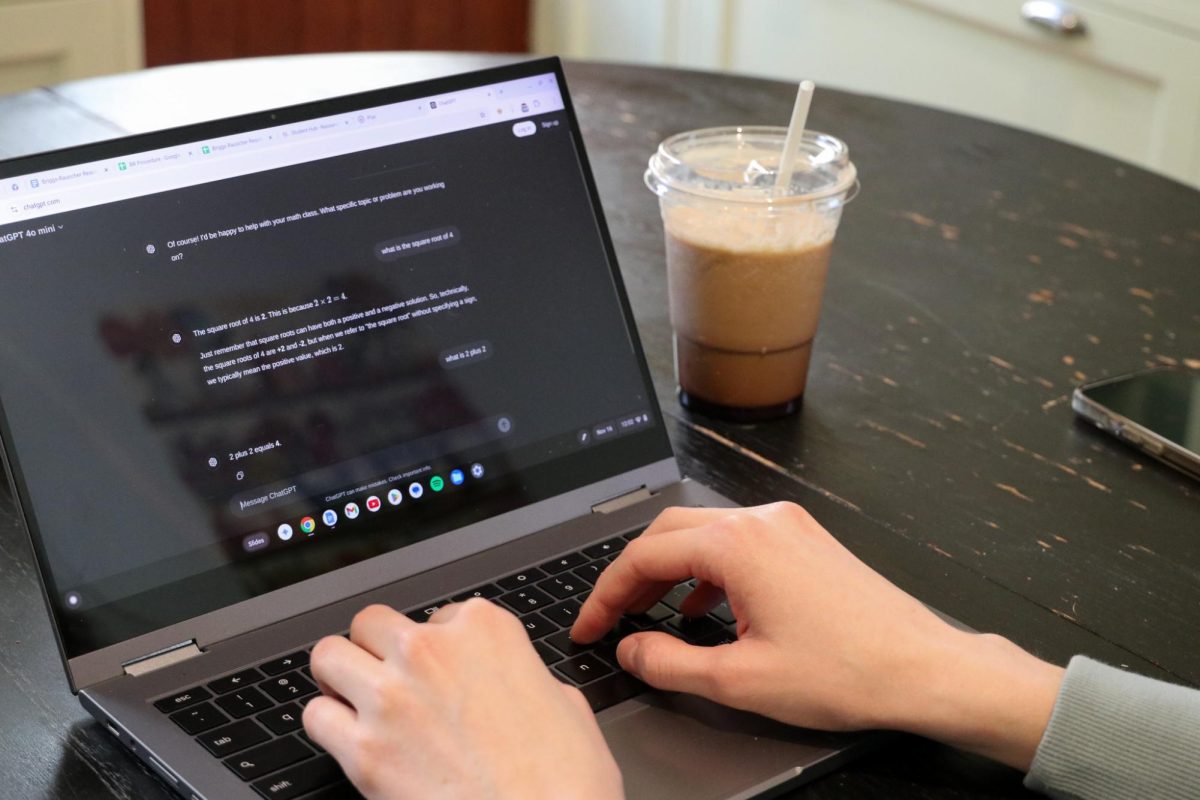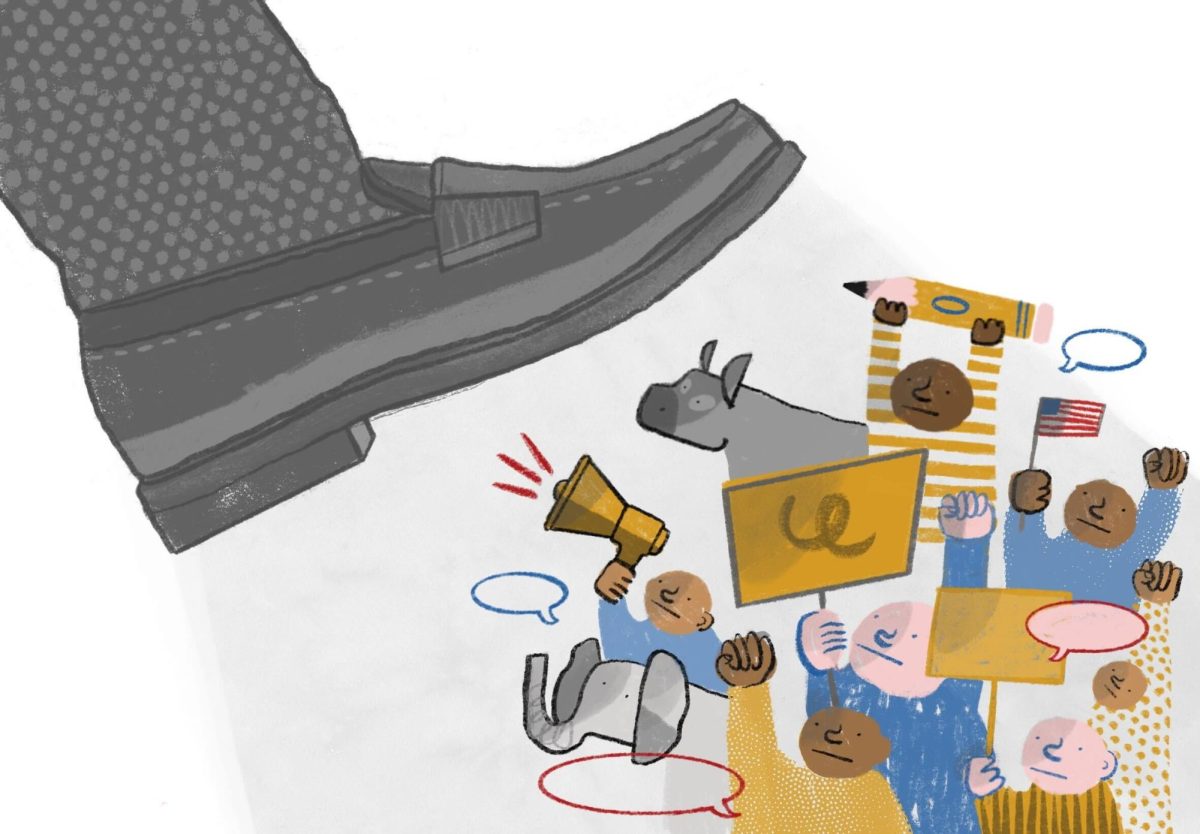Google, in all its glory, is a verb just as much as it is a search engine. When trying to find information, very rarely do I hear people say “look it up,” it’s always “Google it.” ChatGPT is now enduring the same fate, becoming a verb rather than just being artificial intelligence software. I overhear classmates saying they’ll “just ChatGPT it,” speaking about mundane assignments they don’t want to take the time to complete or readings they want shortened and summarized.
The difference between Google and ChatGPT as verbs is that Googling still requires some student participation; ChatGPT replaces it. While I could list all of ChatGPT’s pros and cons, from plagiarism concerns to falsified information, my greatest concern is what it means for learning in a classroom setting.
College students, myself included, often view assignments and readings as a graded task, not an educational tool. It’s not a surprising modality of thought considering the scope of work we have in a semester, our social lives and other commitments to balance. But it means that assignments get completed through whatever means necessary without ever learning the material they were intended to reinforce.
What is the purpose of paying for an education when our goal isn’t to learn but solely to succeed?
The issue stems from students viewing knowledge and education as a mere commodity. We go through college thinking about how we will use our degrees to land jobs rather than how our accumulated knowledge has made us better, more well-informed people. While it’s true that our society is largely dependent on education for economic success, I think it’s important to remember that knowledge isn’t always something to be bought and sold.
Of course, this is easier said than done. In a collegiate environment, where academic pressure is high and free time is minimal, it’s hard to feel that knowledge is more than just a means to an end.
But that doesn’t mean we should rely on ChatGPT to foster our academic success; when it gets used in that way, the value of education is lost. Sure, there may be a good grade on one’s transcript, but the individual who asked ChatGPT to give the information needed to get that grade never fully learned it.
This view on studying and completing assignments was solidified when I began taking a Global Perspectives on Discrimination and Health course this semester. Global Perspectives is a discussion-based class in which we have weekly readings about theories of discrimination and how they impact health. But there’s one important stipulation to this course: We aren’t allowed to use our laptops during class. Twice a week, we all come to class with paper notes and marked-up printouts of our daily readings, ready to have productive, detailed conversations about what we’ve learned.
I can honestly say it’s the only class I’ve been in since I started college where everyone actually does the readings, and doesn’t just skim or skip them. And it’s because we’re engaged with the material and with one another.
Everyone brings diverse and thoughtful questions and comments about the readings to class, unashamed of participating in discussions. By being bound to paper rather than screens, we’re forced to take notes on concepts and quotes that captivate us, not what ChatGPT tells us we should think is important.
The class made me realize that learning isn’t meant to burden our lives. I look forward to completing my readings, even if they’re 40 pages long, because I genuinely feel like I’m learning something.
When you strive for knowledge as a way of bettering yourself mentally, you become more connected to the enjoyment of learning. Of course, as students, we’re all in school to advance our careers, but that can’t be the only way we think about education.
Knowledge is how we connect with the world and people around us, and curiosity is what drives us forward. A passion for learning is something that doesn’t leave you as an adult, nor can it ever be replaced by AI software that simply regurgitates information when prompted.
Similarly to how ChatGPT and Google are verbs just as much as they are internet software, studying is an action just as much as a skill. Having the discipline and desire to sit down and study takes practice and isn’t going to go perfectly all the time. But studying the “real” way, without the help of ChatGPT, will be more beneficial for students in the long run and gets easier the more it’s practiced. This applies directly to future classes, but also to our adult lives in improving our attention spans and making us more inquisitive.
Our minds are muscles, and learning and studying are how we exercise them. We owe it to ourselves to commit to learning, not just completing assignments. It will make studying in the future easier, increase our knowledge and likely improve our grades.
The ease of AI is undeniable, but so is the power of knowledge.
Kara Orsini is a fourth-year health science major and columnist for The News. She can be reached at orsini.k@northeastern.edu.
The Huntington News is dedicated to serving the Northeastern University community with original, professional reporting and creating an environment in which student journalists can learn from one another. Support an independent, free press at Northeastern University with your donation today.


















